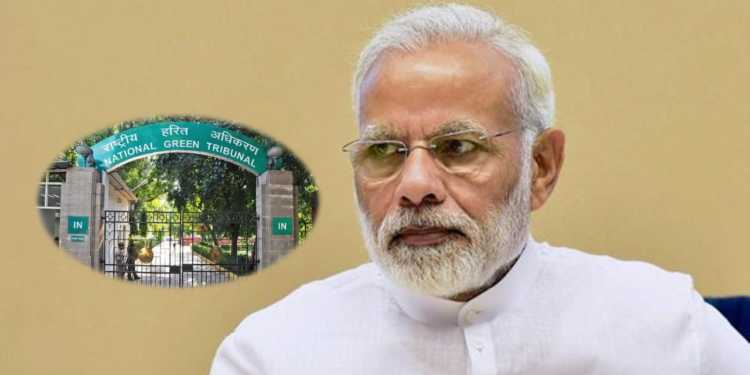The misrule of Congress party and its certified cronies is nothing new to this nation, which has the ignominy of tolerating an autocratic dynasty for more than 61 years. However, ever since the BJP government has assumed power, it’s the Congress that has been at the receiving end, losing grip over almost every institution that it used to rule like a fiefdom.
Let’s talk about the National Green Tribunal (NGT). NGT is a special tribunal created via the National Green Tribunal Act, 2010 (NGT) – an Act of the Parliament of India to handle the expeditious disposal of the cases pertaining to environmental issues. It draws inspiration from the India’s constitutional provision of Article 21, which assures the citizens of India the right to a healthy environment.
The legislate Act of Parliament defines the National Green Tribunal Act, 2010 as follows,
“An Act to provide for the establishment of a National Green Tribunal for the effective and expeditious disposal of cases relating to environmental protection and conservation of forests and other natural resources including enforcement of any legal right relating to environment and giving relief and compensation for damages to persons and property and for matters connected therewith or incidental thereto”
Looks like a great initiative, doesn’t it?
Justice Lokeshwar Singh Panta became its first Chairman. Currently it is chaired by Justice Swatanter Kumar since 20 Dec 2012. Justice Swatanter Kumar was appointed by on the behest of ex Environmental Minister Jairam Ramesh and Jayanthi Natarajan’s suggestions in 2012.
Under Swatantra Kumar, NGT has had a rather notorious and dubious record. Many NGT decisions in the recent past have been specifically unkind to Hindu practices, thereby invoking the ire of millions of Indians, be it the ban on firecrackers during Diwali in NCR, or restricting the number of pilgrims to the holy shrine of Goddess Vaishno Devi in Katra to a mere 50000 devotees per day.
However, what caused a significant furor was the NGT’s latest diktat to ban the chanting of mantras and the ringing of bells throughout the pilgrimage to Amarnath Yatra shrine, alleging that since the route is ecologically sensitive, the mantras and bells would trigger avalanches. The social media erupted in anger, with users and activists speaking against NGT and criticizing it for its anti Hindu stance. It took an embarrassed NGT a day to finally update their arbitrary clause, saying that this rule applies only to the sanctum sanctorum, the area where the natural shivalingam arises.
What is the Modi Government doing about NGT?
Modi Government did introduce a bill, on the lines of their bill which sought to remove the collegium system of electing the judges. The new rules do away with a condition that the NGT can only be headed by a former Supreme Court judge or the chief justice of a high court, and takes away the judiciary’s control on the process to appoint the tribunal’s members. According to the bill, which is yet to be passed by Rajya Sabha, the members of NGT shall be elected by a special committee, which shall comprise the Chief Justice of India, the Environment Minister and other members recommended by the environment ministry.
The Bill aims to reduce the clout of the NGT, which is unfortunately not bound to follow the Code of Civil Procedure, and make it a near subordinate of the Environment Minister. It is up to Modi government to ensure that such bills see the light of the day quickly!



























